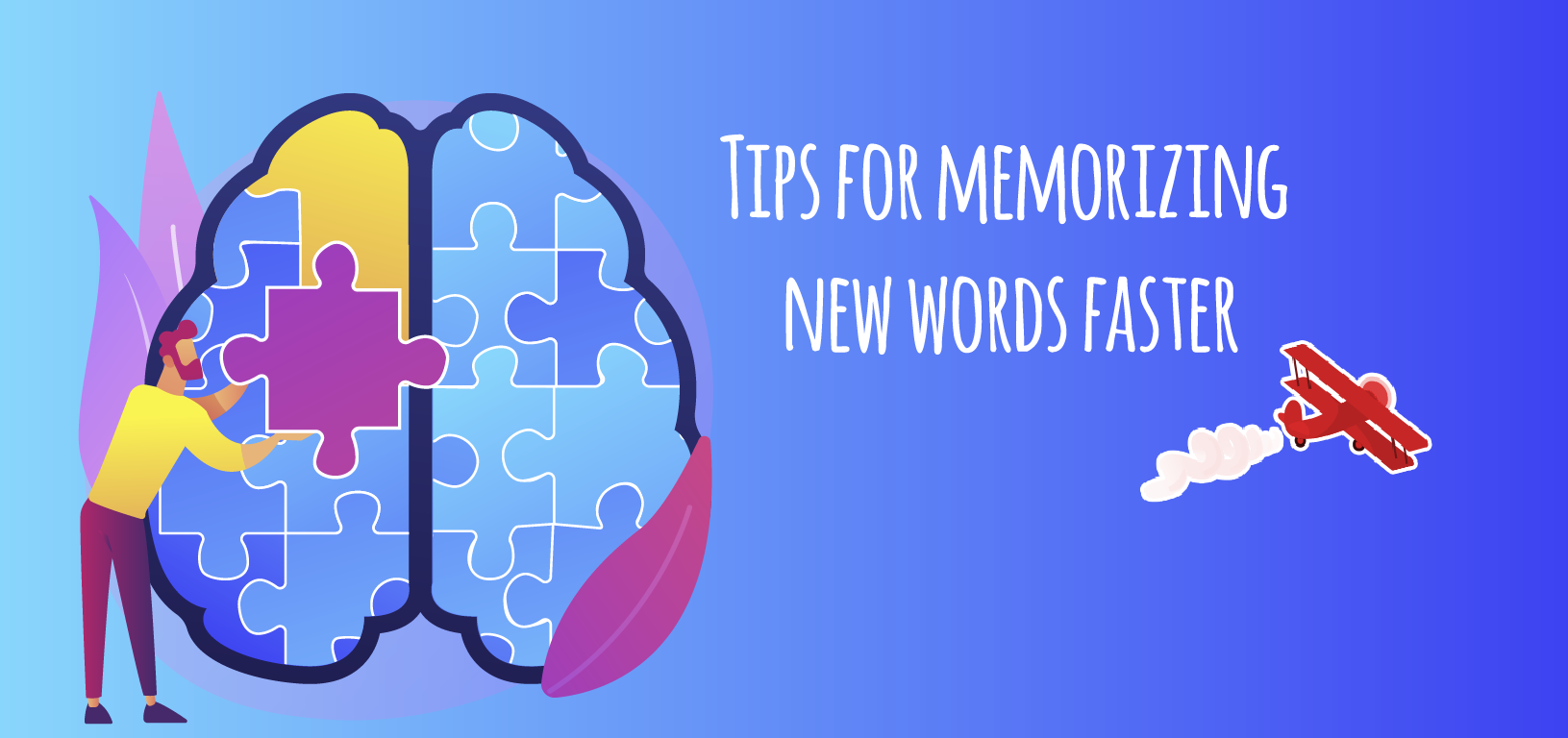Tips for memorizing new words faster

Tips for memorizing new words faster
INDEX OF CONTENTS
- Use mnemonic techniques
- Create a learning environment
- Put the words in context
- Learn from real life situations
- Take your learning to the next level
- Find the tools that work for you
- Make it interactive?
- Focus on useful words
- Repeat and repeat again
- When can I not use ‘we have’?
No matter what your grammar knowledge is, if you don’t know any words you can practice it with, you won’t get very far with your language skills: vocabulary opens doors to new worlds and makes learning fun and satisfying.
But increasing your vocabulary knowledge is like a diet – you have to work hard and there is no magic trick or secret or one approach that works for everyone. Everyone has to find what works for them; But being patient, setting realistic goals, and rewarding yourself if you achieve them are complementary strategies to each of the following points.
Use mnemonic techniques
A popular way to memorize new words is the use of mnemonics, which are mental shortcuts that help you remember more complex words or concepts. For example, you can create associations between words:
- If you do not remember how the word “lodging” is spelled, remember that it has “two Cots” (two cots) that need “two Mattresses” (two mattresses). Or you can think of an acronym: for example, when you have to go to the STORE to buy spaghetti, tomatoes, olives, rice, eggs. The problem, of course, is that you still have to memorize the acronym, song, or association, but with a little practice, you’ll be good at creating creative and useful connections. And the more you think about acronyms and associations, the more you will remember the words that accompany them.
Create a learning environment
When you study abroad, you will hear and read the language everywhere and learn much faster with total immersion. But you don’t have to study abroad to gradually increase the amount of vocabulary you know; you can create a stimulating and reconciling atmosphere wherever you are: buy magazines or books in the new language, watch movies, and cook (or eat) local food.
Put the words in context
A good idea to learn more words quickly is to put them in context: instead of writing lists of random words, you try to put them in sentences. This way, you will know how the word is normally used. Also, if you come up with funny phrases, it will be easier to memorize them. Depending on how you learn, you can also draw pictures or look for pictures that complement the sentences and place them within their “natural habitat”.
Learn from real life situations
Speaking of everyday situations: movies, television series, books, podcasts or songs are not only an excellent source for the most common words, they can also help you memorize vocabulary because they are always associated with a scene, a person, or a real event. Therefore, try to read books or movies in the original language (with subtitles) and try to understand the meaning of the words. If you see or hear a sentence that you don’t understand, write it down, look it up, and start memorizing it.
Take your learning to the next level
If you want to take language learning to the next level, leave room for mind maps with associated words, synonyms or antonyms. If you want to get the most out of your learning process, try not to translate the word into your native language , but explain and describe it in the language you are trying to learn.
Find the tools that work for you
Everyone learns differently, so if you still don’t know what works for you, try as many shapes and combinations as possible – memorizing flashcards, apps, lists, games, or post-its are great ways to memorize words. The same goes for the time you spend learning: some prefer to set precise moments, others learn more spontaneously. Regardless of which approach you choose, be sure to keep up; after all, practice leads to perfection.
Make it interactive
Just as it’s important to find the right tools that work for you, it’s also crucial to make the learning experience as comprehensive as possible: don’t just read the words on cards or lists, listen to how they’re said, repeat them out loud, and write them down or digitize them. The more you make your encounter with words an experience for the five senses, the better. After all, why not eat ice cream while learning what the different flavors are called?
Focus on useful words
If you want to improve your vocabulary because you want to work for a marketing company abroad, you probably don’t need to read Shakespearean novels or focus on words used in the Middle Ages. The more practical and extended the vocabulary of your work, your hobbies and your real conversations, the easier it will be to learn the words; In addition, you can use them more frequently and memorize them faster. It’s like a game: you can reward yourself every time you use a certain word in conversation.
Repeat and repeat again.
Remember not only to repeat common words, but also “old things” that you think he has already memorized. You don’t have to look at “old” words as often as new ones, but the more you use them, the more you’ll remember them.


